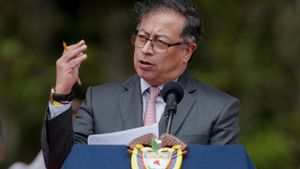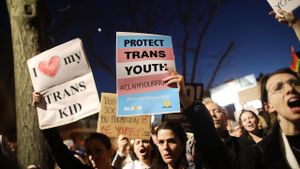Brazil is experiencing a notable wave of optimistic economic momentum and enhanced geopolitical positioning under President Luiz INácio Lula da Silva. Recent developments reflect both the power of domestic economic factors and strategic international engagement as Brazil seeks to regain its stature on the global stage.
On January 30, 2025, the Brazilian stock market exploded with enthusiasm, culminating in the Ibovespa index climbing 2.82% to close at 126,913 points—the highest nominal level recorded since December 11, 2024. This rally was fueled by significant local factors, including decreased future interest rates and the Brazilian real's remarkable strength, appreciating for nine consecutive sessions against the U.S. dollar, which closed at R$5.85. Investors reacted positively to the Central Bank's Monetary Policy Committee (COPOM) statement, interpreted as more dovish than anticipated. The committee decided to raise the Selic policy rate to 13.25% but reserved the intensification of hikes for future contemplation. Eduardo Cohn, portfolio manager at Heritage Capital Partners, remarked, "Lula was very composed and said what the market wanted to hear, but the market will demand concrete actions."
This optimistic sentiment was compounded by weaker-than-expected employment data, which reinforced expectations of softer economic activity. The employment figures alluded to the possibility of lower interest rates, prompting investors to reposition their holdings. The outlook on the economy reflected expectations of less aggressive rate hikes—forecasts now suggest a peak Selic rate of approximately 15.5% moving forward. The mood is shifting toward higher-beta stocks, particularly sectors sensitive to lower interest rate expectations. Retailer Magazine Luiza soared 12.59%, and education company Yduqs increased by 9.86%. Analysts predict these shifts could promote increased economic activity and corporate earnings.
While the local market celebrates, Lula has also reaffirmed Brazil's commitment to geopolitical leadership as host of significant international events like the G20 and COP30. During his press conference at Planalto Palace, he declared, "I am not being humble when I tell you we held the most important G20 in history. Now we will repeat this with the largest BRICS and hold the best ever COP, in the heart of the Amazon, where no one believed it was possible." With COP30 slated to take place in Belém, Lula emphasized the global importance of the Amazon region, contextualizing it within discussions on climate change and sustainable development. This meeting aims to attract international attention and investment, highlighting the need for proactive measures against climate change.
According to Lula, the upcoming discussions will include various stakeholders, from indigenous peoples to heads of state. He expressed urgency, stating, "COP30 will serve as a benchmark for what we want moving forward. If we do not do something bold, these COPs will be discredited because they approve measures...but no country ever follows through." His remarks reflect Brazil's aspirations to not only lead but also innovate approaches to global environmental challenges, pushing for accountability among developed nations.
Brazil's economic strategy also involves substantial progress on the trade front. Lula reported the opening of over 300 new markets for national agricultural products—an achievement of significant magnitude, marking Brazil's position as the world’s breadbasket. Advocates for this expansion highlight how Brazil has solidified its relationships with economic powers, including agreements with the European Union, the world’s largest trading bloc. This considerable trade access can stimulate the economy, providing much-needed revenue streams for various sectors.
Another significant topic of discussion was the historic tax reform approved during Lula's recent presidency. Lula stated, "One thing the world will thank us for is the approval of the tax reform... which will make Brazil more attractive for foreign investments." Slated for implementation by 2027, this reform is poised to diversify Brazil's business relations, signalling enhanced cooperation with foreign stakeholders and investors.
Despite these positive developments, challenges loom on the horizon. Some analysts, including Bruno Cordeiro from Kapitalo Investimentos, caution against transitioning sentiments. "We’re likely to see weaker economic activity and persistently high inflation," he mentioned. Cordeiro also pointed out the looming pressures of the 2026 election, where Lula's approval ratings will undoubtedly influence market stability and investor confidence moving forward. Concerns about the potential imposition of new tariffs on Brazilian exports by the United States also weigh on Lula’s administration, but he has stated his commitment to reciprocity: "If they put tariffs on Brazilian products, Brazil will reciprocate."
Overall, Brazil stands at a transformative juncture, with Lula championing both economic stability at home and progressive leadership internationally. His vision seeks to reestablish Brazil’s role as not only a major economic player but also as a stalwart defender of democracy and environmental sustainability. The country’s next moves will be pivotal, as both domestic and international observers keep close tabs on its developments, awaiting the tangible impacts of Lula’s policies.



